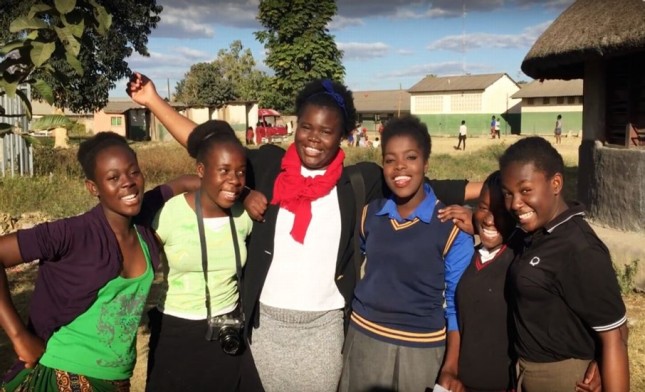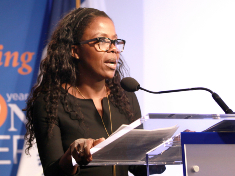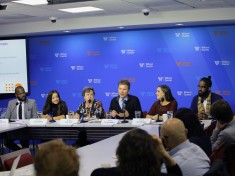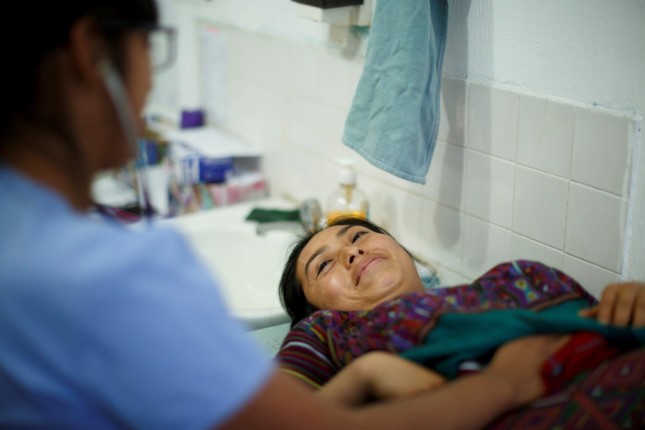Isabel Griffith
Isabel Griffith is an intern with the Maternal Health Initiative and a recent graduate of the University of Pennsylvania, where she studied Health and Societies and Hispanic Studies. Isabel is a passionate connector and researcher interested in improving maternal and child health outcomes globally through comprehensive research, open dialogue, and health system strengthening.
Isabel’s senior honors thesis research in Costa Rica inspired her interest in maternal health and highlighted the importance of ensuring high quality healthcare during the prenatal, childbirth, and post-partum period for improving maternal health outcomes. Isabel is excited about pursuing a career that contributes to global goals of gender equality, women’s empowerment, and improved quality of life for birthing mothers around the world. Before joining the Wilson Center, Isabel held research positions at the Johns Hopkins Bloomberg School of Public Health and the Monteverde Institute in Monteverde, Costa Rica.
-
Patricia Da Silva: ‘The Time is Now’ to Accelerate Progress for Sexual and Reproductive Health and Rights
› “Almost everyone of reproductive age—about 4.3 billion people—will not have access to at least one essential or reproductive health intervention over the course of their lives,” said Patricia Da Silva, Associate Director, International Planned Parenthood Federation United Nations Liaison Office. She spoke at a recent Wilson Center event showcasing recommendations from the Guttmacher-Lancet Commission report, “Accelerate progress–sexual and reproductive health and rights for all,” on how to advance sexual and reproductive health from a human rights perspective.
“Almost everyone of reproductive age—about 4.3 billion people—will not have access to at least one essential or reproductive health intervention over the course of their lives,” said Patricia Da Silva, Associate Director, International Planned Parenthood Federation United Nations Liaison Office. She spoke at a recent Wilson Center event showcasing recommendations from the Guttmacher-Lancet Commission report, “Accelerate progress–sexual and reproductive health and rights for all,” on how to advance sexual and reproductive health from a human rights perspective. -
Innovative Approaches Empower Adolescent Girls to Live HIV-free Lives
›
“Everyone in the community knew that I was the next [to get pregnant], but I was so determined that until I achieve my dream of becoming an accountant, I will not drop out of school, and I will not get pregnant,” said Rebecca Acio, a 19-year-old Ambassador for the Strengthening School-Community Accountability for Girls’ Education (SAGE) DREAMS Project, Uganda. She spoke at a recent Wilson Center event on emerging lessons from the DREAMS Innovation Challenge. As a peer educator at her school in Lira, Uganda, and a temporary dropout herself, Acio “knew what it cost to be a dropout” and worked to identify other at-risk girls to encourage them to stay in school.
-
Senator Nikoli Edwards: Adolescent Health and Investing in a Generation
›In January 2017, President Anthony Carmona swore in Nikoli Edwards, age 25, as the youngest temporary senator in Trinidad and Tobago’s history. “I have been very much involved in piecing together the puzzle when it comes to how we develop the holistic young person in Trinidad and Tobago,” said Senator Nikoli Edwards in a Wilson Center interview with Roger-Mark De Souza, a Wilson Center Global Fellow, on Edwards’s personal journey into youth advocacy and the importance of engaging young people in decision-making.
-
Cultivating Meaningful Youth Engagement in Sexual and Reproductive Health Programming
› “We need to mainstream young people into the decision-making process,” said Senator Nikoli Edwards, age 25, of Trinidad and Tobago at a recent Wilson Center event on engaging youth to protect their sexual and reproductive health and rights. “Where it’s not a matter of, ‘let’s bring a young person into the room as an afterthought,’ but it should be written that a young person has to be a part of the discussion or has to be contributing in a significant way.”
“We need to mainstream young people into the decision-making process,” said Senator Nikoli Edwards, age 25, of Trinidad and Tobago at a recent Wilson Center event on engaging youth to protect their sexual and reproductive health and rights. “Where it’s not a matter of, ‘let’s bring a young person into the room as an afterthought,’ but it should be written that a young person has to be a part of the discussion or has to be contributing in a significant way.” -
Saving Lives: Focusing on Outcomes to Improve Maternal and Newborn Healthcare Quality
›
Poor quality care is now a bigger barrier to reducing mortality than insufficient access to healthcare, said Dr. Margaret Kruk, Chair of The Lancet Global Health Commission on High Quality Health Systems in the Sustainable Development Goal Era. She spoke at a recent Wilson Center event on strategies to improve and sustain high-quality reproductive, maternal, and newborn care at scale. “We estimate that 8.6 million lives are lost every year due to lack of access to high quality care, and of that 8.6 million, five million lives are lost by people who have already reached out to the health system.”


 “Almost everyone of reproductive age—about 4.3 billion people—will not have access to at least one essential or reproductive health intervention over the course of their lives,” said Patricia Da Silva, Associate Director, International Planned Parenthood Federation United Nations Liaison Office. She spoke at a
“Almost everyone of reproductive age—about 4.3 billion people—will not have access to at least one essential or reproductive health intervention over the course of their lives,” said Patricia Da Silva, Associate Director, International Planned Parenthood Federation United Nations Liaison Office. She spoke at a  “We need to mainstream young people into the decision-making process,” said Senator Nikoli Edwards, age 25, of Trinidad and Tobago at a
“We need to mainstream young people into the decision-making process,” said Senator Nikoli Edwards, age 25, of Trinidad and Tobago at a 


